42 Entry-Level Remote Jobs That Require No Experience [2024]
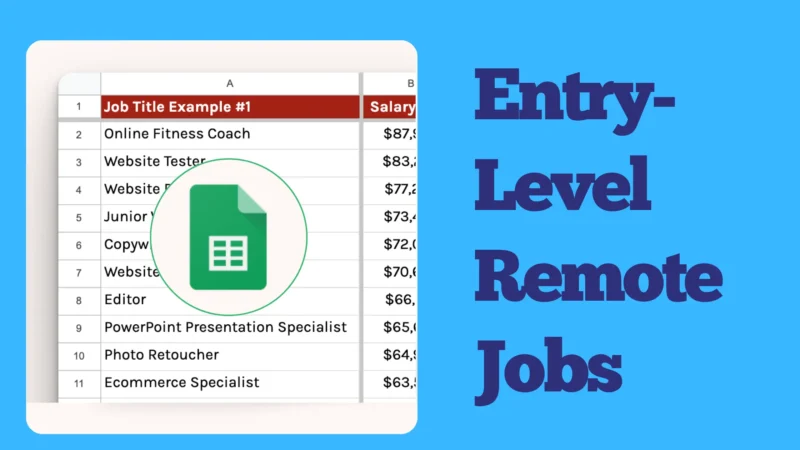
You want to work remotely, but you’re early in your career. Here’s the problem – most jobs you’ve come across require 2-5 years of experience or even experience working from home. So you’ve finally honed your search to look for entry-level remote jobs and ones that require no experience. We’re here to help.
Today, we’ve compiled the 18 job categories that have entry-level remote jobs. Within each category, you’ll see common job titles, average salaries, and descriptions of the day-to-day work. Here are a few important notes before you start your research on this page:
- The job may not require experience, but it could require a certificate or degree (like coding/development)
- The job may not require experience, but it could require a proven skill or ability to deliver that skill through a test (like writing, social media management, graphic design, etc.)
- All of these jobs are entry-level, meaning you won’t be managing anyone and you’ll have the lowest income and title within the department
Let’s get you your first remote job, so you can finally list your experience on the next job search.
- Overview of entry-level remote jobs
- Full list
- Where to find these jobs
- My experience in my first remote role (age 26)
Entry-Level Remote Jobs (Overview)
Click on the “Category” link (first column) to learn more about jobs that require no experience within that group. Click on the “Find Jobs” link (last column) to start your search on a remote job board we recommend.
Category | Job Titles | Average Salary | Find Jobs |
Junior Web Developer, Programmer Analyst | $81,207 | ||
Website Tester, Game Tester | $64,280 | ||
Copywriter, Blog Writer, Technical Writer | $54,464 | ||
Research Analyst | $44,452 | ||
Creative Graphic Designer, Junior Motion Graphic Artist, Graphic Artist | $53,510 | ||
Travel Agent, Travel Consultant | $52,959 | ||
Sales Associate, Sales Consultant, Account Executive | $51,850 | ||
Legal Transcriptionist, Documentation Specialist | $51,757 | ||
Appointment Setter, E-mail Outreach Specialist | $49,160 | ||
Social Media Content Creator, Social Media Specialists, Social Media Assistant | $47,200 | ||
Translator | $46,270 | ||
Online English Teacher, Online Tutor | $44,932 | ||
Accounting Clerk , Accounting Assistant, Junior Accountant | $43,877 | ||
Event Coordinator | $43,870 | ||
Copy Editor, Junior Copy Editor | $45,027 | ||
Virtual Administrative Assistant, Virtual Receptionist, Remote Virtual Assistant | $41,518 | ||
Data Entry Specialist, Data Entry Clerk, Data Entry Technician | $37,080 | ||
Customer Service Clerk II, Chat Agent, Customer Experience Specialist | $36,843 |
See Also:
Entry-Level Remote Jobs (By Category)
In this section, we break down each remote/at-home job that doesn’t require experience.
Programming Jobs
Common jobs titles:
- Junior Web Developer: $73,432
- Programmer Analyst: $88,981
Average Salary: $81,207
Programmers write, adjust, and test software code that dictates the functioning of a computer. application. Although programming jobs may not require experience, they most likely require proof of the skill (through a test project) or a trustworthy certification in the coding language.
Here are two entry-level, remote programming jobs that may not require experience (depending on the company).
See Also: 217 Companies With Unlimited PTO & Remote Work
Junior Web Developer
According to Glassdoor, the average salary for a Junior Web Developer is $73,432.
- Build web-based applications (websites or software programs)
- Turn business requirements into technical capabilities
- Optimize code for speed, scalability, and usability
Programmer Analyst
According to Glassdoor, the average salary for a Programmer Analyst is $88,981.
- Debug programs when problems arise
- Analyze coding and testing programs
- Update software requests
Testing Jobs
Common jobs titles:
- Website Tester: $83,236
- Game Tester: $45,324
Average Salary: $64,280
A remote testing job is responsible for trialing a website, software application, or game for usability and errors. The detailed work done by the tester would provide the programmers with ways to improve the product or service.
Here are two entry-level, remote testing jobs that may not require experience (depending on the company).
Website Tester
According to Glassdoor, the average salary for a Website Tester is $83,236.
- Test beta accounts for usability
- Provide feedback about the user experience
- Record improvements to graphics, ease of use, audio quality, etc.
Game Tester
According to Glassdoor, the average salary for a Game Tester is $45,324.
- Run test plans on beta versions of the game
- Assess functionality and usability
- Log issues with the development team
Writing Jobs
Common jobs titles:
- Copywriter: $45,773
- Blog Writer: $49,770
- Technical Writer: $67,849
Average Salary: $54,464
Writers are necessary to the marketing efforts of a business. Writers create content for blogs, support forums, landing pages, marketing emails, reports, and more.
Writing jobs also appear in our report about easy remote jobs under the category, “easy because it’s fun” to do.
Here are three remote writing job titles that are sometimes entry-level and require no experience (depending on the company).
Copywriter
According to Glassdoor, the average salary for a Copywriter is $45,773.
- Write marketing copy for emails, web pages, blog posts, etc.
- Coordinate with the marketing team so messages reach goals
- Translate tone of voice for the market
A subset of copywriting is to provide some academic content like essay writing, research paper editing, and dissertation editing. MyCustomEssay.com is an example of a marketplace that offers this service. There are plenty of marketplaces connecting students and academics with writers.
Blog Writer
According to Glassdoor, the average salary for a Blog Writer is $49,770.
- Write blog articles to attract the right audience
- Implement best practices for search engine optimization
- Improve existing articles based on analytics
Technical Writer
According to Glassdoor, the average salary for a Technical Writer is $67,849.
development and maintenance of technical documentation covering specifications, drawings, reports, and logistics data to organize into technically accurate
- Write documentation for the support portal to help customers use the product better
- Write copy that will be used within the software application to guide the user
- Write reports and specifications about the product
Research Jobs
Common jobs titles:
- Research Analyst: $44,452
The job of a researcher is to obtain information from a number of sources to prepare the data for analysis. The research could be done to analyze financial investments, scientific findings, market opportunity, or more.
Here is an entry-level research job that can be done from home (or remotely).
Research Analyst
According to Glassdoor, the average salary for a Research Analyst is $44,452.
- Perform market research including competitive analysis and financial analysis
- Support strategic planning and development of financial and business plans
- Maintain and update pipeline reporting
Research jobs also ranked highly in our article on the best jobs for work life-balance.
Graphic Design Jobs
Common jobs titles:
- Creative Graphic Designer: $55,000
- Junior Motion Graphic Artist: $59,394
- Graphic Artist: $46,135
Average Salary: $53,510
Graphic design is the process of turning a message or idea into a visual depiction that tells a story. The job a requires many skills – creativity, visual artistry, communication, branding, color coordination, project management, and more.
Here are three entry-level graphic job titles that may not require experience, but will most likely require skills within specific computer programs like Adobe Creative Suite or Illustrator.
Creative Graphic Designer
According to Glassdoor, the average salary for a Creative Graphic Designer is $55,000.
- Turn marketing ideas and messages into attractive graphics
- Work through drafts and versions to perfect the final product
- Use programs like Adobe Creative Suite to create graphics
Junior Motion Graphic Artist
According to Glassdoor, the average salary for a Junior Motion Graphic Artist is $59,394.
- Develop visual communication designs from sketch to final storyboard
- Research and implement new types of animation and motion
- Communicate graphics internally to other teams
Graphic Artist
According to Glassdoor, the average salary for a Graphic Artist is $46,135.
- Create graphics and drawings
- Work with the marketing team, graphic design team, and sales team to create artwork
- Maintain the library of graphic art and photos across the company
Travel Agent Jobs
Common jobs titles:
- Travel Agent: $48,711
- Travel Consultant: $57,206
Average Salary: $52,959
Travel agents help people book trips. They could help customers book vacations or help book travel for coworkers internally.
Here are two travel agent jobs that may not require experience and can be done remotely.
Travel Agent, Travel Consultant
According to Glassdoor, the average salary for a Travel Agent is $48,711.
Organize travels from beginning to end, through booking tickets and accommodation, securing rental transportation etc. Use promotional techniques and prepare promotional materials to sell itinerary tour packages. Attend trainings to maintain familiarity with tourism trends.
- Research various destinations and present them to your client for approval
- Support clients before, during, and after their trip
- Book every part of travel for the client based on their budget and needs
Sales Jobs
Common jobs titles:
- Sales Associate: $45,458
- Sales Consultant: $41,713
- Account Executive: $68,380
Average Salary: $51,850
At a company, the sales team is responsible for making contact with potential customers with the purpose of providing the company’s product or service to the prospect for a price. Sales jobs require determination, good process, enthusiasm, people skills, empathy, and more.
Here are three common sales job titles that may not require experience.
Sales Associate
According to Glassdoor, the average salary for a Sales Associate is $45,458.
- Find new prospects in our lead generation tool
- Email prospects, follow up, and book calls
- Report on emails, calls booked, and sales
Sales Consultant
According to Glassdoor, the average salary for a Sales Consultant is $41,713.
- Create self-generated leads
- Report on and track outcomes in our CRM system
- Hand off the sale to our customer support team
Account Executive
According to Glassdoor, the average salary for an Account Executive is $68,380.
- Establish relationships, uncover prospect needs, and close new business
- Schedule sales meetings with the decision maker
- Identify new opportunities for new business
Transcription Jobs
Common jobs titles:
- Legal Transcriptionist: $52,576
- Documentation Specialist: $50,938
Average Salary: $51,757
Transcription is the process of turning an audio recording into written format. A transcriptionist is typically a person with high attention to detail and fast and accurate typing skills.
Here are two common entry-level transcription job titles that don’t require experience.
Legal Transcriptionist
According to Glassdoor, the average salary for a Legal Transcriptionist is $52,576.
- Transcribe audio dictations accurately from recorded hearings
- Format transcriptions based on client preferences
- Transcribe with proper spelling, grammar, legal terms, names
Documentation Specialist
According to Glassdoor, the average salary for a Documentation Specialist is $50,938.
- Create, develop, and improve standard operating procedures
- Analyze and improve processes
- Manage the electronic document library and make revisions
Business Development Jobs
Common jobs titles:
- Appointment Setter: $45,978
- E-mail Outreach Specialist: $52,342
Average Salary: $49,160
Business development has multiple meanings – it could mean building high-level partnerships for the brand or company, but in the case of entry-level jobs, it usually means the early responsibilities in a sales cycle.
Here are business development jobs that are entry level, typically do not require experience, and can be done at home.
Appointment Setter
According to Glassdoor, the average salary for an Appointment Setter is $45,978.
- Find potential prospects through our lead generation tools
- Follow up with leads and prospects
- Secure appointments for the sales team
E-mail Outreach Specialist
According to Glassdoor, the average salary for an E-mail Outreach Specialist is $52,342.
- Send email campaigns to inbound leads
- Find and reach out to cold leads with customized email messages
- Set up meetings for the sales team with email outreach
Social Media Management Jobs
Common jobs titles:
- Social Media Content Creator: $53,301
- Social Media Specialists: $47,432
- Social Media Assistant: $40,866
Average Salary: $47,200
Social media management is the process of acting on behalf of the company (brand) on online networks like Twitter, Facebook, and LinkedIn. In a social media role, you create content (written words, video, graphics) for the social network channels, manage responses from other accounts, and strategize ways to grow the company’s social following.
Here are three of the most common entry-level social media job titles that don’t require experience.
Social Media Content Creator
According to Glassdoor, the average salary for a Social Media Content Creator is $53,301.
- Source, create, edit, and share daily content for our brand
- Manage Instagram, TikTok, Facebook, YouTube, and Twitter accounts for our company
- Report on results for the marketing team
Social Media Specialist
According to Glassdoor, the average salary for a Social Media Specialist is $47,432.
- Manage the daily and monthly social media calendar
- Run campaigns on social media to increase following and reach
- Improve processes based on best practices in our industry
Social Media Assistant
According to Glassdoor, the average salary for a Social Media Assistant is $40,866.
- Schedule social media posts
- Track inbound opportunities from social media
- Assist in creating content and graphics for social media
Translation Jobs
Common jobs titles:
- Translator: $46,270
Average Salary: $46,270
Translators convert content from one language to another, typically in written form.
Although there could be other job titles for translation services, most will at least include the word “translator” in the title.
Translator
According to Glassdoor, the average salary for a Translator is $46,270.
- Be fluent in English and Spanish (or multiple languages)
- Translate documentation from one language to the other
- Translate web pages from one language to the other
Tutoring Jobs
Common jobs titles:
- Online English Teacher: $45,022
- Online Tutor: $44,842
Average Salary: $44,932
A tutor provides individual or small-group teaching services. In the context of this article, online tutors provide services remotely and may not require any experience.
Here are two remote tutoring jobs to research.
Online English Teacher
According to Glassdoor, the average salary for an Online English Teacher is $45,022.
- Teach online English classes to students
- Read through and prepare to present pre-made lesson plans
Online Tutor
According to Glassdoor, the average salary for an Online Tutor is $44,842.
- Work with students in online teaching sessions (over video)
- Teach reading comprehension (or math, or writing, etc.)
- Meet consistently with students to track progress
Bookkeeping Jobs
Common jobs titles:
- Accounting Clerk: $39,138
- Accounting Assistant: $41,713
- Junior Accountant: $50,780
Average Salary: $43,877
Bookkeeping is the process of recording financial transactions for an organization. While most accounting or bookkeeping jobs require a degree, some entry-level jobs can be done without experience or a degree.
Here are three remote bookkeeping jobs that can be done remotely at an entry-level position.
Accounting Clerk
According to Glassdoor, the average salary for an Accounting Clerk is $39,138.
- Match invoices to purchase orders
- Support the accounts payable and receivables team with data entry and notifications
- Help the accounting team with account reconciliation, month-end close, and custom reports
Accounting Assistant
According to Glassdoor, the average salary for an Accounting Assistant is $41,713.
- Handle daily clerical tasks for the accounting department
- Process vendor bills and follow up with unpaid invoices
- Respond to vendor inquiries
Junior Accountant
According to Glassdoor, the average salary for a Junior Accountant is $50,780.
- Process a high volume of invoices
- Maintain customer accounts and set up new vendors
- Prepare financial reports as needed
Event Planning Jobs
Common jobs titles:
- Event Coordinator: $49,316
- Event Specialist: $38,424
Average Salary: $43,870
Event planning is the process of coordinating a conference, trade show, meeting, business trip, team building activity, or more. Since you are looking for remote event planning jobs, those would fall into two categories – someone who plans virtual events only, or an event planning role that can be done mostly from home except for travel to the in-person events.
Here are two entry-level event planning jobs that are sometimes done remotely and often require no experience.
Event Coordinator
According to Glassdoor, the average salary for an Event Coordinator is $49,316.
- Manage all aspects of events to support our marketing trade shows, conferences, local events, and webinars
- Manage budgets for events
- Support pre-show and post-show marketing campaigns
Event Specialist
According to Glassdoor, the average salary for an Event Specialist is $38,424.
- Create content marketing email campaigns related to events
- Manage company-hosted webinars
- Plan and execute key in-person events
See Also: If you still don’t mind working outside of the home, check out Lensa’s blog article about on-site jobs that don’t require a college degree.
Proofreading Jobs
Common jobs titles:
- Copy Editor: $48,385
- Junior Copy Editor: $41,670
Average Salary: $45,027
Proofreading is the process of checking for errors in spelling, grammar, and punctuation in written content before it is published.
Here are three entry-level proofreading job titles that can be done from home (or remotely).
See Also: How To Become A Freelance Editor
Copy Editor, Junior Copy Editor
According to Glassdoor, the average salary for a Copy Editor is $48,385 and for a Junior Copy Editor is $41,670.
- Proofread and edit across many marketing content types
- Write copy for select projects
- Record all work in our project management tool and deliver work on time
Virtual Assistance Jobs
Common jobs titles:
- Virtual Administrative Assistant: $43,870
- Virtual Receptionist: $36,304
- Remote Virtual Assistant : $44,380
Average Salary: $41,518
A virtual assistant is like a secretary who works from home and supports one or more companies. Virtual assistants provide administrative support like responding to emails and booking meetings. If you want to stand out from other VAs, find a niche. For example, skills like email marketing, content creation, social media marketing, or graphic design are sought after by almost any employer.
Here are three virtual assistant jobs you can do from home with no experience.
Virtual Administrative Assistant, Remote Virtual Assistant
According to Glassdoor, the average salary for a Virtual Administrative Assistant is $43,870 and for a Remote Virtual Assistant is $44,380.
- Update data for clients in our CRM
- Communicate with clients via email
- Manage meeting requests for managers
Virtual Receptionist
According to Glassdoor, the average salary for a Virtual Receptionist is $36,304.
- Answer general phone calls and emails to the company
- Organize calendars and schedule meetings
- Create internal presentations
Data Entry Jobs
Common jobs titles:
- Data Entry Specialist: $37,041
- Data Entry Clerk: $35,880
- Data Entry Technician: $38,318
Average Salary: $37,080
Data entry is the process of moving information from one place to another or updating information as it changes. Data entry could be moving figures paper to digital format, switching data from one system to another, or updating records in an existing database.
Here are three of the most common entry-level data entry job titles that don’t require experience.
Data Entry Specialist
According to Glassdoor, the average salary for a Data Entry Specialist is $37,041.
- Enter email, fax, or written correspondence claim requests into our database
- Compile, verify the accuracy, and sort important company information
- Review data for errors and make corrections
Data Entry Clerk, Data Entry Technician
According to Glassdoor, the average salary for a Data Entry Clerk is $35,880 and a Data Entry Technician is $38,318.
- Reconcile payments for accounts payable and receivable
- Enter job cost data
- Review and enter data updates in the systems
Customer Service Jobs
Common jobs titles:
- Customer Service Clerk II: $34,435
- Chat Agent: $36,095 (also listed in our no-phone, work-from-home jobs report)
- Customer Experience Specialist: $40,000
Average Salary: $36,843
Customer service representatives help customers get the most out of the company’s service or product by providing phone, chat, and email support.
Here are three customer service jobs that can be done remotely, are considered entry level, and typically do not require experience.
Customer Service Clerk
According to Glassdoor, the average salary for a Customer Service Clerk II is $34,435.
- Process incoming support calls on a daily basis
- Document customer inquiries
- Resolve customer service issues (tickets)
Chat Agent
According to Glassdoor, the average salary for a Chat Agent is $36,095.
- Respond to incoming customer support questions through the chat tool on our website
- Answer questions and resolve issues
- Reroute potential upsell or sales opportunities to the right team
Customer Experience Specialist
- Assist customers with billing, technical and general support inquiries
- Investigate, diagnose, and troubleshoot customer issues
- Enter data for quotations and sales orders
According to Glassdoor, the average salary for a Customer Experience Specialist is $40,000.
Where To Find Remote Jobs With No Experience
Remote Rocketship
I think Remote Rocketship is the best remote job board today. There are 60,000+ jobs to sort from for a fair price ($21 for a month).
Start your search on Remote Rocketship.
Flexjobs
This job board is specifically for remote and flexible jobs and it has a career-level filter for “entry level.”
Start your search on Flexjobs.
See Also: Where—And How―To Find Remote Jobs
Can you get a remote job with no experience?
Yes. The most common roles that can be done remotely that do not require experience come in these departments:
- Internal support: Data entry, virtual assistance, transcription, research
- Customer support: Customer service, travel agent
- Marketing: Graphic design, writing, event planning, social media
- Sales: Account management, business development
See Also: 36 Easy Remote Jobs
What are the best paying entry-level remote jobs?
According to Buildremote research, these are the five highest paying entry-level remote job categories:
- Programming: $81,207
- Testing: $64,280
- Writing: $54,464
- Research: $54,434
- Graphic Design: $53,510
Under each job category, we found up to three of the most common job titles that require no experience. The salaries you see are an average of those job title salaries pulled from Glassdoor.
What kind of remote jobs are available without a degree?
These types of remote jobs may not require a degree:
- Data entry jobs
- Virtual assistant jobs
- Customer service jobs
- Research jobs
- Sales jobs
See Also: 27 Best Remote Jobs For College Students
|
Explore These Helpful Email Templates for Remote Job Interviews
Navigating the remote job market can be challenging, especially when crafting the perfect email. To assist you, we’ve compiled a list of blog posts offering essential email templates for remote job interviews. Whether you need to write a compelling application, schedule an interview, or follow up afterward, these resources will help you communicate professionally and effectively.
- How To Email A Job Recruiter [TEMPLATE]
- Email Expressing Job Interest [TEMPLATE]
- How To Write An Email Requesting A Job Interview [TEMPLATE]
- Email To Confirm An Interview [TEMPLATE]
- Email To Accept A Job Interview [TEMPLATE]
- Email To Reschedule An Interview [TEMPLATE]
- Email To Decline An Interview [TEMPLATE]
- Email To Cancel An Interview [TEMPLATE]
- Emails Asking For Interview Feedback [TEMPLATE]
- 2 Interview Thank You Email [TEMPLATE]
- Short Thank You Email After Interview [TEMPLATE]
- 1st Follow-Up Email After An Interview [TEMPLATE]
- 2nd Follow-Up Email After Interview [TEMPLATE]
- Interview Follow-Up Email After 2 Weeks [TEMPLATE]
- Follow-Up Email After A Phone Interview [TEMPLATE]
- Refer-A-Friend Email Example [TEMPLATE]
- Email Before Starting A New Job [TEMPLATE]
- 21 Remote Interview Email Templates
We hope you find this article useful. Just so you know, Buildremote may collect a small share of sales from the links on this page to help keep this site running.
 Programming
Programming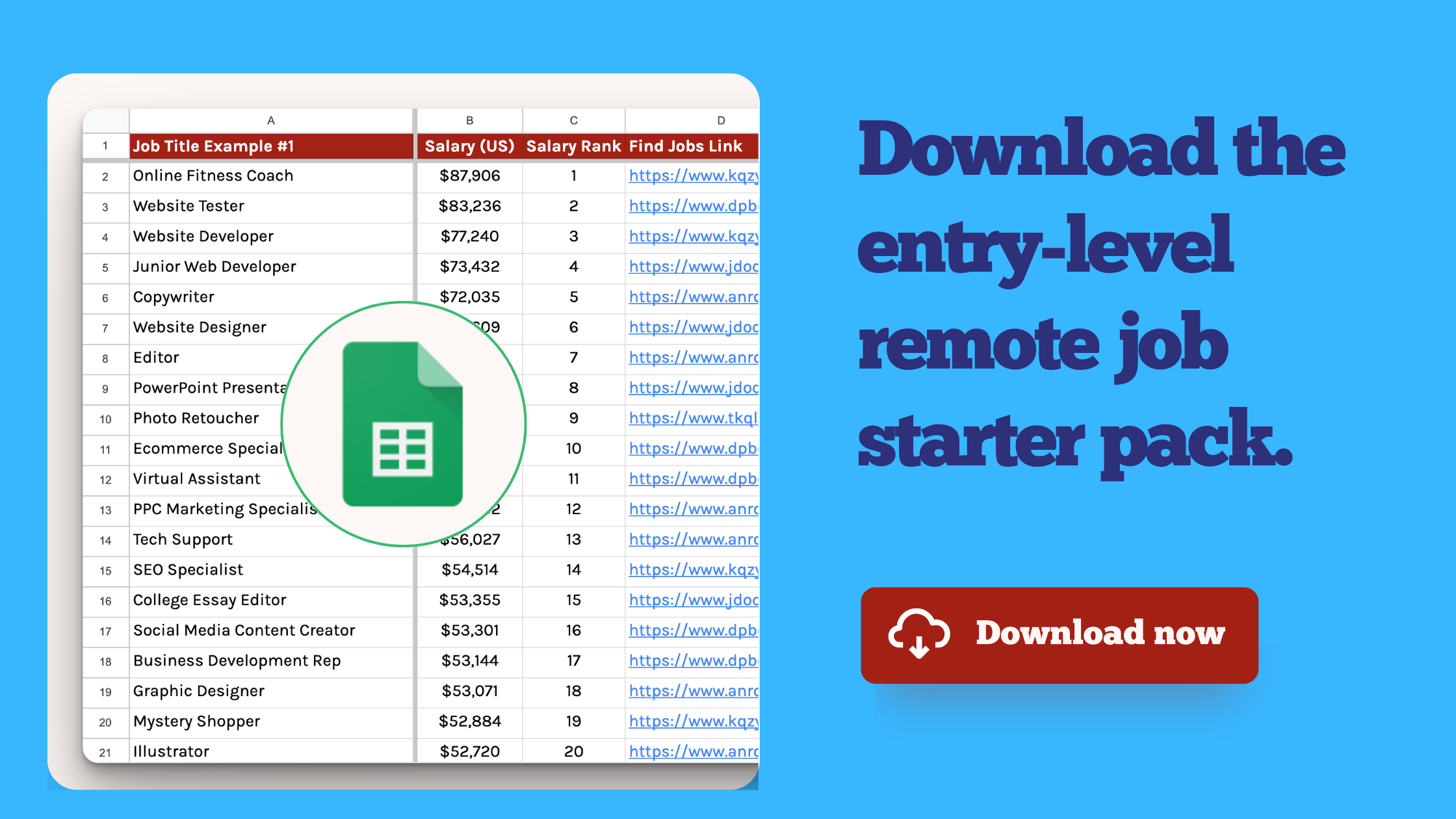
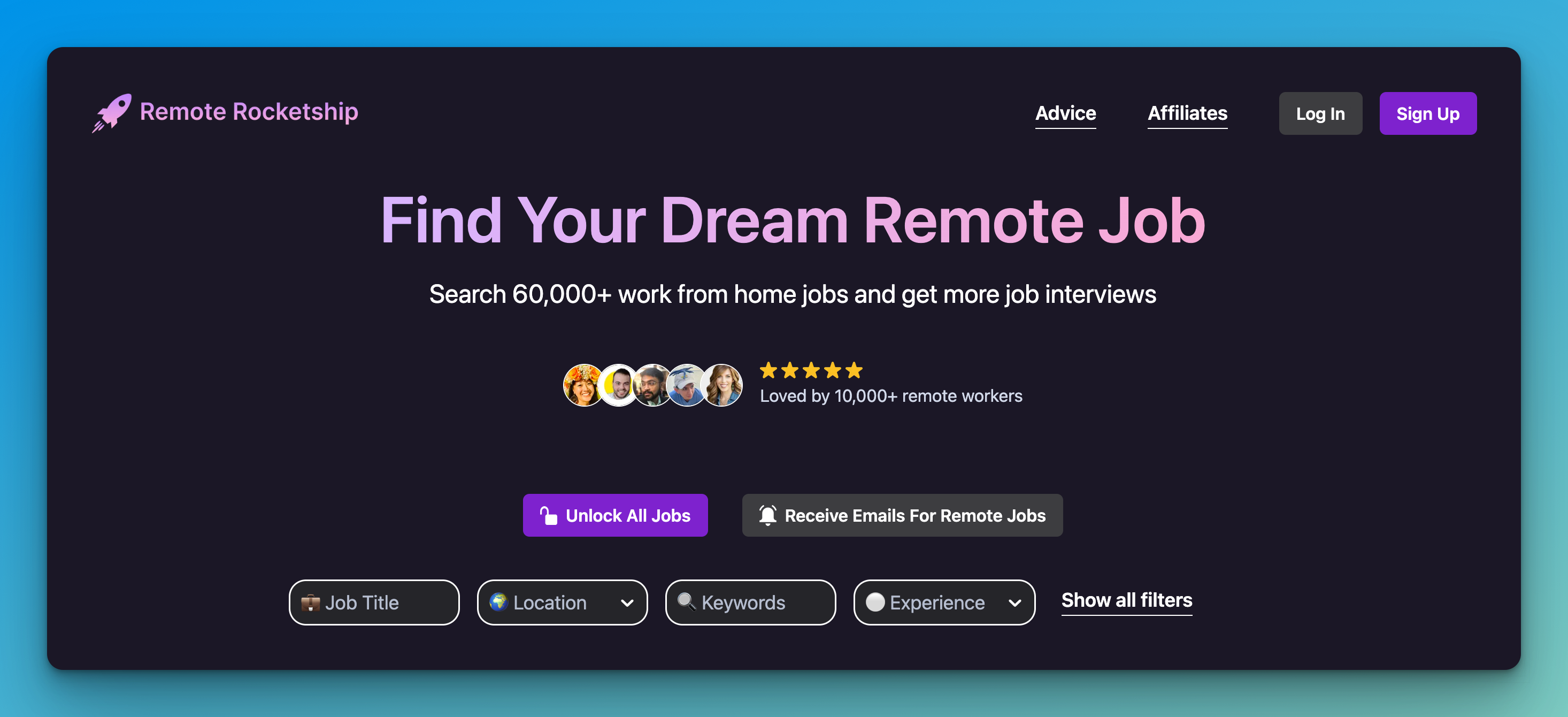
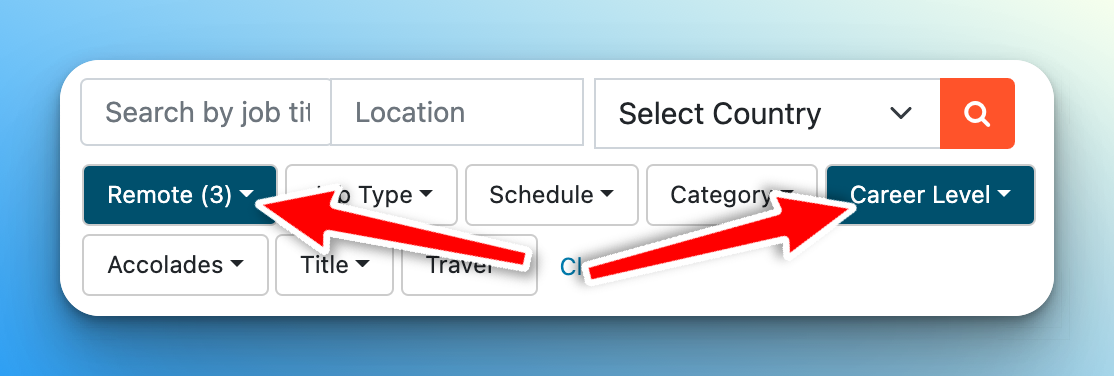
 My First Remote Job (Age 26)
My First Remote Job (Age 26)
Thank you so very much for this website. I have been searching for a job for a year and this gave me some new avenues to pursue. I was a transcriptionist for 40 years and would like to find a remote job so I can continue to take care of my mom. Thanks ever so much!
helps